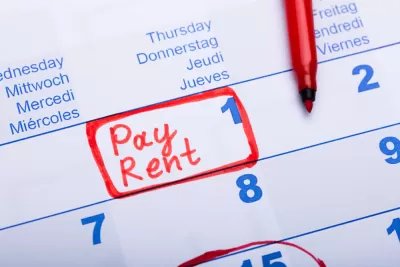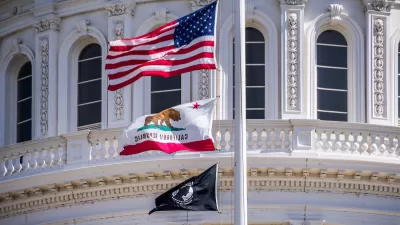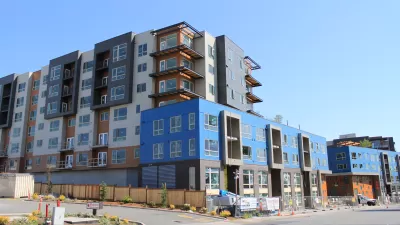The administration acknowledges its limited powers in solving the nation’s housing affordability crisis, but says new actions will examine unfair rental practices and recommend policies to state and local governments.

New federal actions announced today aim to help struggling renters as housing costs for tenant households continue to rise and the nation faces a massive shortage of as many as 5 million homes. As Rachel Siegel reports in the Washington Post, the administration says the new policies are not simply a response to recent spikes in rents, but are designed to address the broader problem of housing affordability and fair housing.
The new policies include directives for several federal agencies to assess instances of unfair rental practices and a template for a Renters Bill of Rights that is not tied to any mandates. According to Siegel, “much of Biden’s plans rely on state and local governments, as well as housing providers around the nation, to join in.”
But the plan has buy-in from federal agencies, which are tasked with understanding unfair rental practices and other issues that disadvantage renters. “The Federal Trade Commission and the Consumer Financial Protection Bureau will collect information exploring unfair practices in the rental market,” while other federal agencies including the Justice Department will examine competition issues in the rental market.
The actions the administration can take are limited, Siegel points out. According to organizer Tara Raghuveer, “The White House announcement introduces potential for agency-level action but falls short of issuing directives to regulate rent and address consolidation of the rental market.” For now, housing policy remains largely a state and local issue.
FULL STORY: White House unveils new tenant protections amid soaring rental costs

Maui's Vacation Rental Debate Turns Ugly
Verbal attacks, misinformation campaigns and fistfights plague a high-stakes debate to convert thousands of vacation rentals into long-term housing.

Planetizen Federal Action Tracker
A weekly monitor of how Trump’s orders and actions are impacting planners and planning in America.

In Urban Planning, AI Prompting Could be the New Design Thinking
Creativity has long been key to great urban design. What if we see AI as our new creative partner?

King County Supportive Housing Program Offers Hope for Unhoused Residents
The county is taking a ‘Housing First’ approach that prioritizes getting people into housing, then offering wraparound supportive services.

Researchers Use AI to Get Clearer Picture of US Housing
Analysts are using artificial intelligence to supercharge their research by allowing them to comb through data faster. Though these AI tools can be error prone, they save time and housing researchers are optimistic about the future.

Making Shared Micromobility More Inclusive
Cities and shared mobility system operators can do more to include people with disabilities in planning and operations, per a new report.
Urban Design for Planners 1: Software Tools
This six-course series explores essential urban design concepts using open source software and equips planners with the tools they need to participate fully in the urban design process.
Planning for Universal Design
Learn the tools for implementing Universal Design in planning regulations.
planning NEXT
Appalachian Highlands Housing Partners
Mpact (founded as Rail~Volution)
City of Camden Redevelopment Agency
City of Astoria
City of Portland
City of Laramie





























